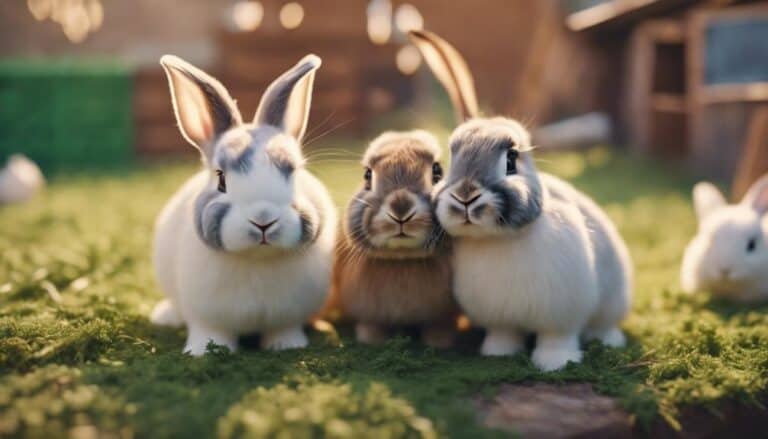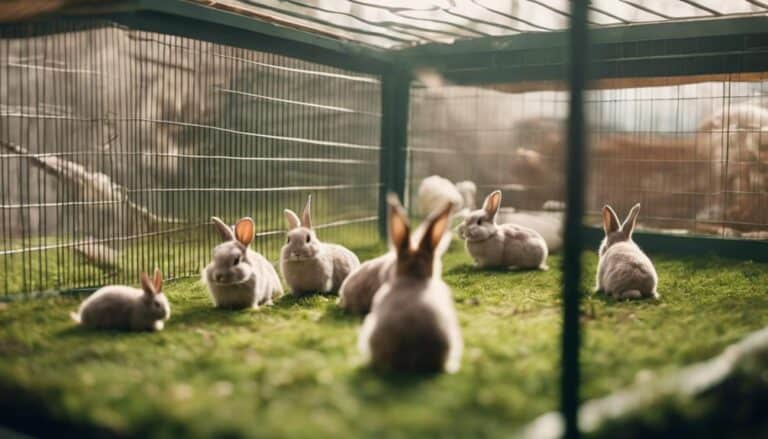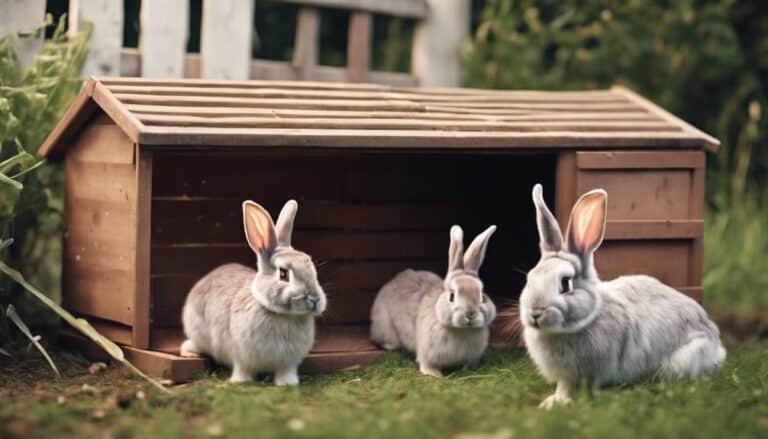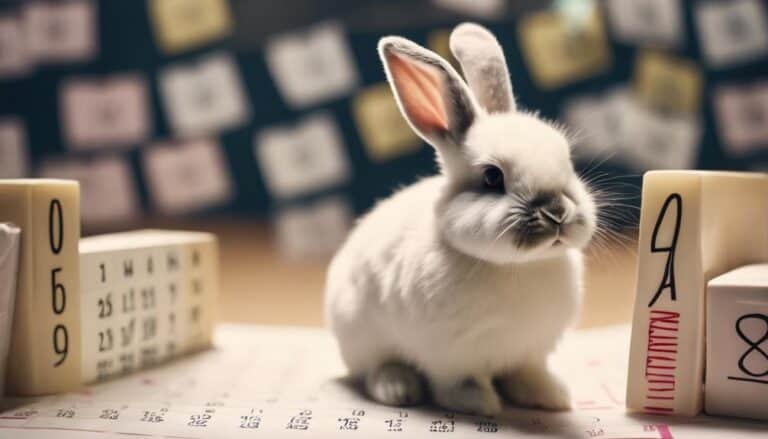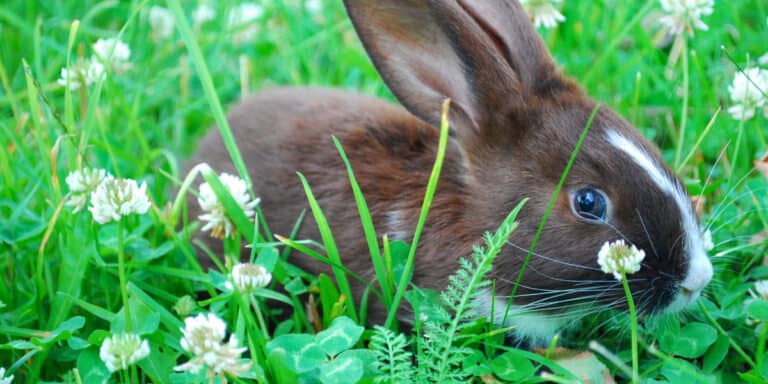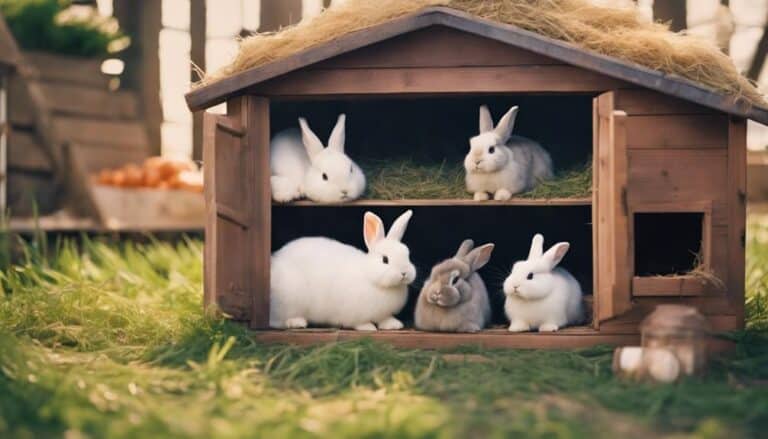When it comes to selecting the perfect bunny breeding pair, 'like attracts like.' Ensuring compatibility between rabbits extends beyond mere appearances. Consider the significance of health, genetics, and temperament in your breeding choices.
By delving into these essential factors, you establish the groundwork for successful breeding endeavors. So, how do you guarantee that your bunny breeding pair is truly the ideal match?
Let's explore five key tips that will guide you in making informed decisions for your bunny breeding pursuits.
Contents
Key Takeaways
- Evaluate breed standards, pedigree, and health for ideal breeding pair selection.
- Assess temperament compatibility and observe interactions for a harmonious pair.
- Consider age, experience, and future breeding goals for successful mating outcomes.
- Prioritize traits alignment, genetic diversity, and complementing strengths for improved genetic makeup.
Bunny Breeding Pair Selection Criteria
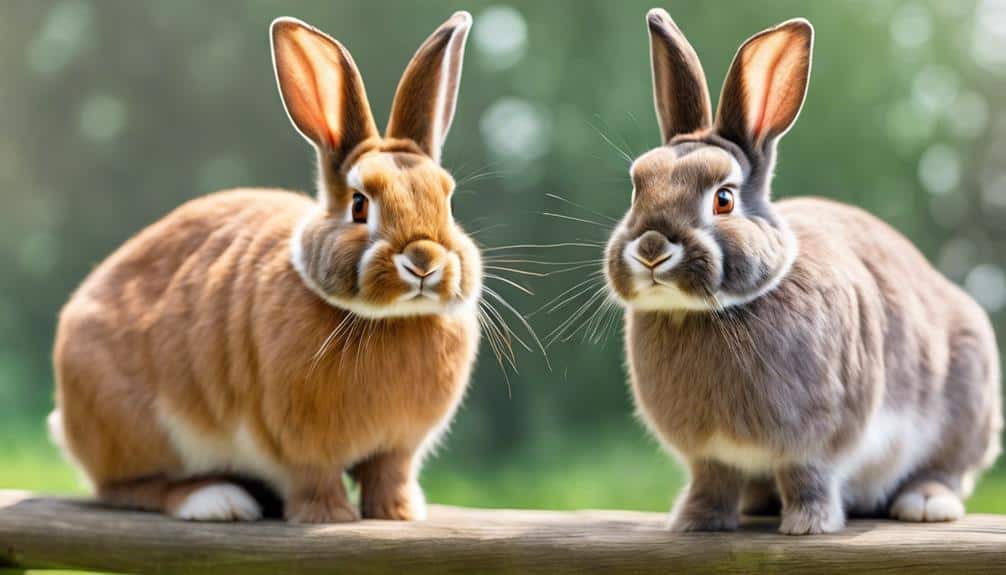
When choosing a bunny breeding pair, it's essential to carefully consider specific selection criteria to guarantee successful outcomes. Start by examining the breed standards for rabbits, paying close attention to confirmation, color, and markings. Evaluating the pedigree and lineage of both rabbits is vital to make sure documented bloodlines and genetic predictability in the offspring. Look for complementary traits in the breeding pair that won't only improve the quality of the offspring but also help meet the desired breed standards.
Moreover, prioritize selecting rabbits with good health, temperament, and a positive reproductive history. Healthy rabbits with sound temperaments are more likely to produce healthy offspring with favorable personalities. Evaluating the reproductive history of the breeding pair can provide insights into their breeding capabilities and potential challenges that may arise.
It is advisable to seek guidance from experienced breeders or rabbit organizations when selecting the perfect breeding pair. Their expertise and advice can be invaluable in making informed decisions that will contribute to successful breeding outcomes.
Health and Genetics Considerations
To guarantee ideal breeding outcomes, thoroughly assess the health history and genetic considerations of the potential bunny breeding pair.
When engaging in rabbit breeding, it's essential to contemplate the health screenings and tests conducted by breeders to secure the quality of the breeding pair. Evaluating the physical characteristics of the rabbits is indispensable to determine if they meet the specific breed standards.
Additionally, checking for any hereditary issues within the bloodline is crucial to prevent passing on potential health problems to the offspring. Opting for rabbits with diverse genetics can help minimize the risk of inbreeding and associated health issues.
Compatibility and Temperament Assessment

Assess the compatibility and temperament of potential bunny breeding pairs by observing their interactions in a neutral environment. Look for signs of aggression or fear between the rabbits, as these behaviors can indicate potential issues in the future. Consider temperament traits such as docility, assertiveness, and friendliness when evaluating the pair.
Choose rabbits that exhibit mutual interest and comfort in each other's presence, as this can lead to a successful breeding relationship. It's essential to make sure that the personalities of the breeding pair complement each other to promote a harmonious bond.
Breeding Pair Age and Experience
Observing the compatibility and temperament of potential bunny breeding pairs is essential for successful outcomes; now, let's explore the importance of considering the age and experience of the rabbits in the breeding process.
When selecting breeding pairs, make sure that both rabbits are at least 6 months old to maintain best reproductive health. Experienced rabbits bring valuable knowledge to the process, increasing the likelihood of successful matings and kindlings. However, younger rabbits may require more supervision and support during breeding and birthing due to their inexperience.
On the other hand, older rabbits may pose fertility risks and have a higher chance of complications during the breeding process. By carefully evaluating the age and experience of both rabbits, you can establish a successful breeding pair that balances fertility and health considerations.
Future Breeding Goals Alignment
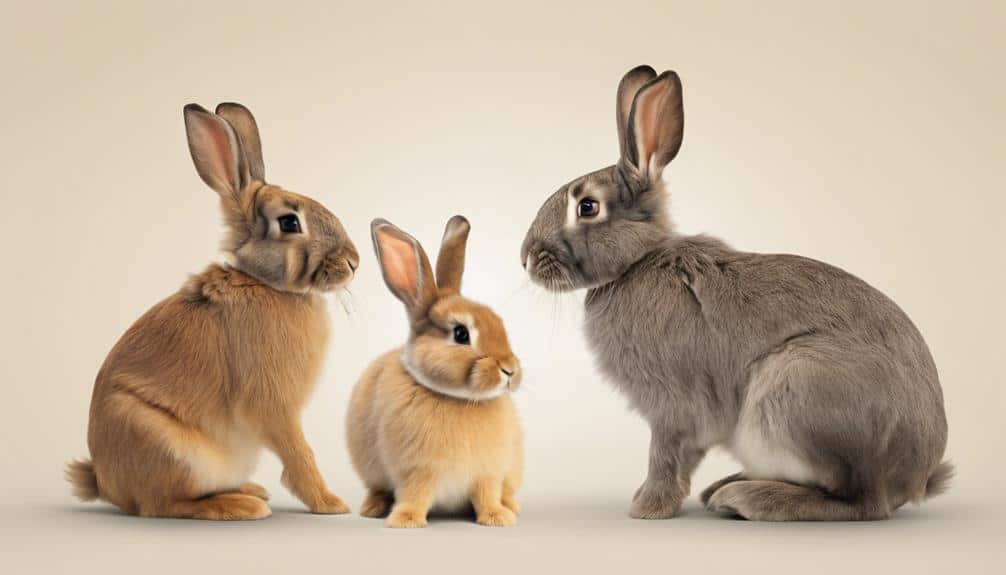
When aligning future breeding goals for your rabbits, prioritize selecting traits that resonate with your desired outcomes, be it for meat production, show quality, or specific pet characteristics. Consider the genetic background of each rabbit to guarantee desirable traits are passed on to the offspring while avoiding undesirable ones. Evaluate the color, size, fur type, and overall conformation of both rabbits to determine how well they align with your breeding objectives.
Select a breeding pair that complements each other's strengths and weaknesses to enhance the quality of the offspring. Aim for a balance in traits where one rabbit may excel in areas where the other lacks, creating a harmonious pairing that improves the overall genetic makeup of the future generations.
Frequently Asked Questions
How Do I Choose the Right Rabbit Breed?
When choosing the right rabbit breed for breeding pairs, consider genetic diversity, temperament traits, and health considerations. Evaluate color genetics, breeding schedules, and pedigree analysis to improve breeding outcomes. Seek guidance for informed decisions.
How Do You Successfully Breed Rabbits?
During the breeding season, guarantee genetic diversity, contemplate breeding age and health checks. Sustain appropriate housing, a well-rounded diet, and monitor breeding behavior. Handle with care, maintain meticulous records for breeding success.
What Are the Qualities of a Good Rabbit Breeding?
When considering good rabbit breeding, focus on size compatibility, matching temperaments, health screening, genetic diversity, age compatibility, breeding experience, color coordination, pedigree evaluation, reproductive history, and environment adaptation. These qualities guarantee successful and healthy bunny offspring.
What Factors Should You Consider When Selecting a Rabbit?
When selecting a rabbit, consider genetics, temperament, health, age, size, color, breeding experience, environment, goals, and behavior. Match rabbits carefully for the best breeding success. Make sure they complement each other for the most excellent results.
Conclusion
Now that you have learned the key factors to contemplate when selecting the perfect bunny breeding pair, remember this interesting statistic:
Did you know that a well-matched breeding pair can produce up to 60 offspring in a single year?
By carefully evaluating health, genetics, temperament, age, and future breeding goals, you can guarantee successful outcomes and maintain the integrity of your rabbit bloodline.
Happy breeding!

